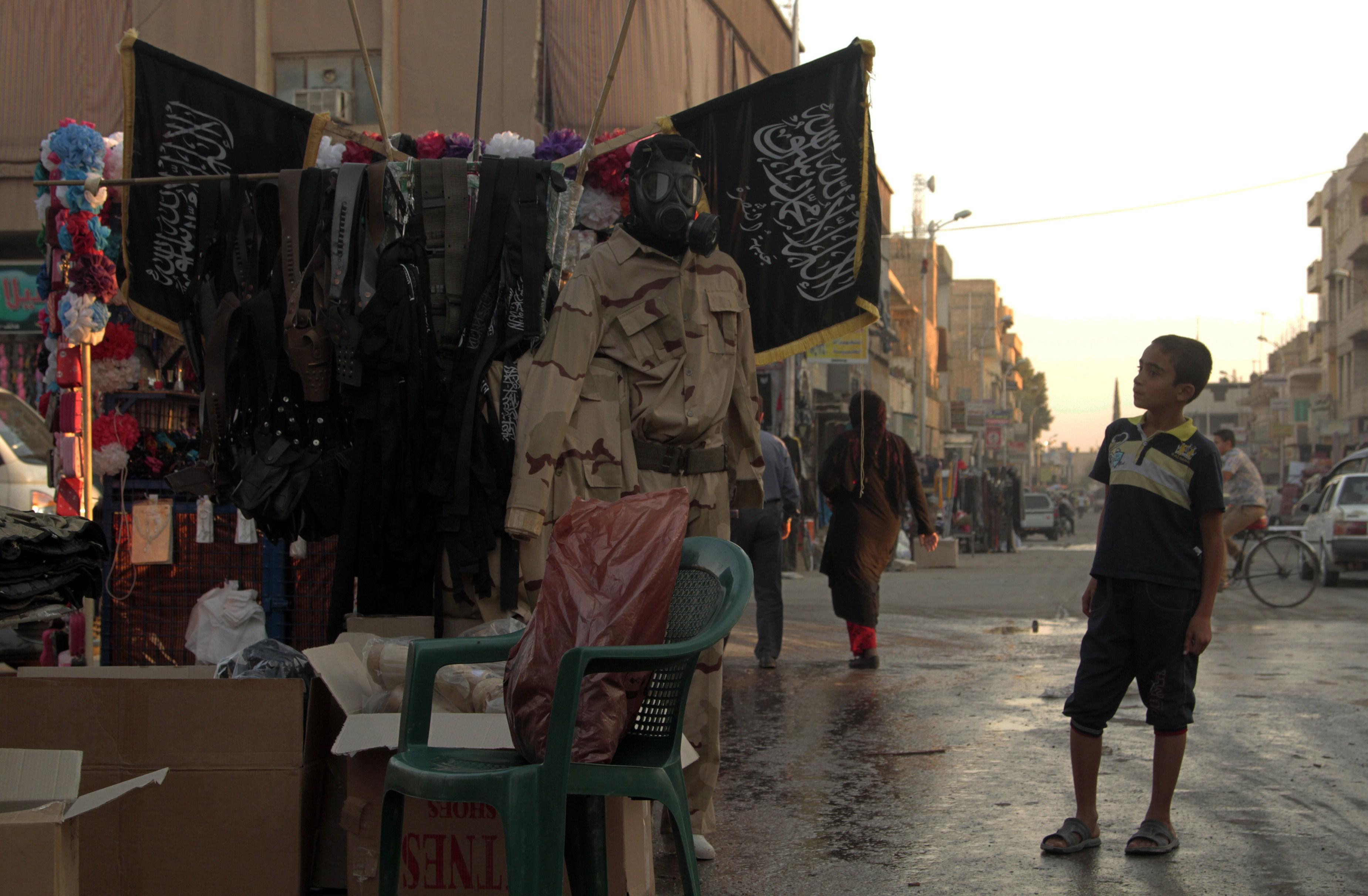It appears that it hasn’t been all gloom and doom under ISIS rule since the group recently declared its new Islamic caliphate. It’s been a lot of gloom in the form of human rights abuses, but there has also been an odd form of stability in the region under ISIS rule.
We are familiar with the bleak narratives of life under the Jihadists: public amputations as punishment for crimes under Sharia law, crucifixions, Christians compelled to pay “minority” taxes, women forced to bundle up in niqabs, black ISIS flags hanging throughout cities, and an overall dampened social life. But a New York Times article captures streaks of a renewed sense of order in the self-declared caliphate’s capital, Raqqa, and how the insurgents are transforming their ideology into reality by establishing their brand of theocratic rule in the eastern Syrian city.
According to the Times, crime in the city has diminished (people are probably worried about losing limbs) as has the culture of bribery that was common under the Assad government. The Islamists are also helping to run bakeries and functional gas stations. Aaron Zelin, a researcher on Jihadism, affirmed what the Times described as “order with a darker side” in an article for The Atlantic last month. ISIS has set up food kitchens, adoption centers, vaccination campaigns, and “‘fun days’ for kids replete with ice cream and inflatable slides,” Zelin reports.
While these images may do little to convince the world to see ISIS in a humane light, it indicates that the group means business about trying to establish their caliphate. Still, ISIS is struggling to provide drinking water and consistent electricity in Raqqa (power outages can last for almost 20 hours a day). Zelin, however, suggests that the $425 million that ISIS seized from Mosul’s central bank might be used in tackling these kinds of problems. Essentially, Raqqa remains the group’s test case; a blueprint for how they intend to run their form of theocratic rule. So far their tactics have apparently been successful in appeasing—as the Times put it—“war-weary citizens… who will accept any authority that can restore a semblance of normal life.”
